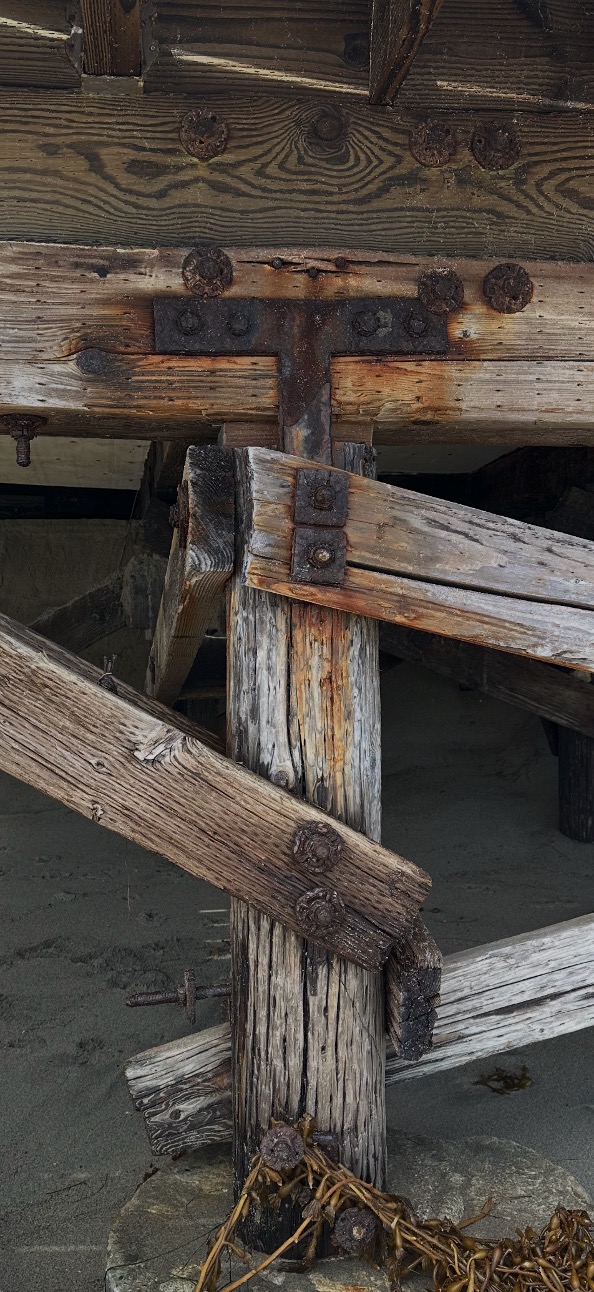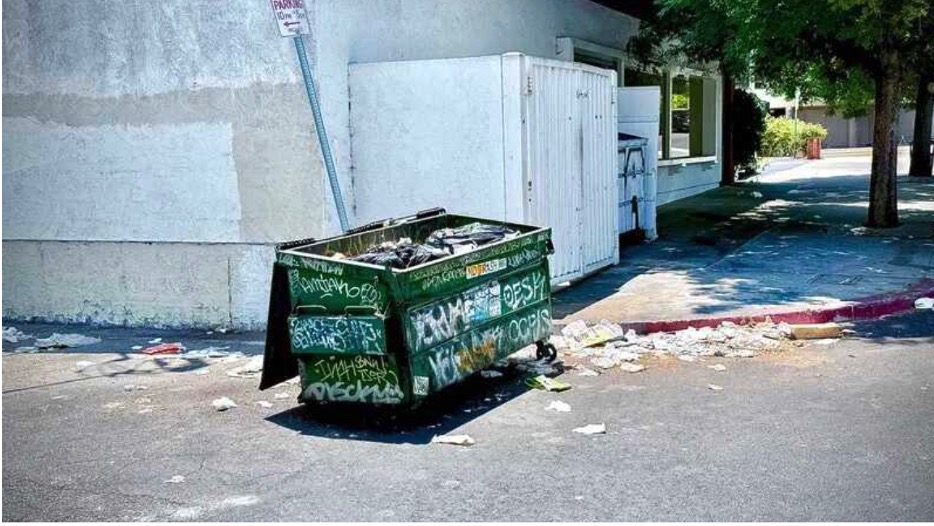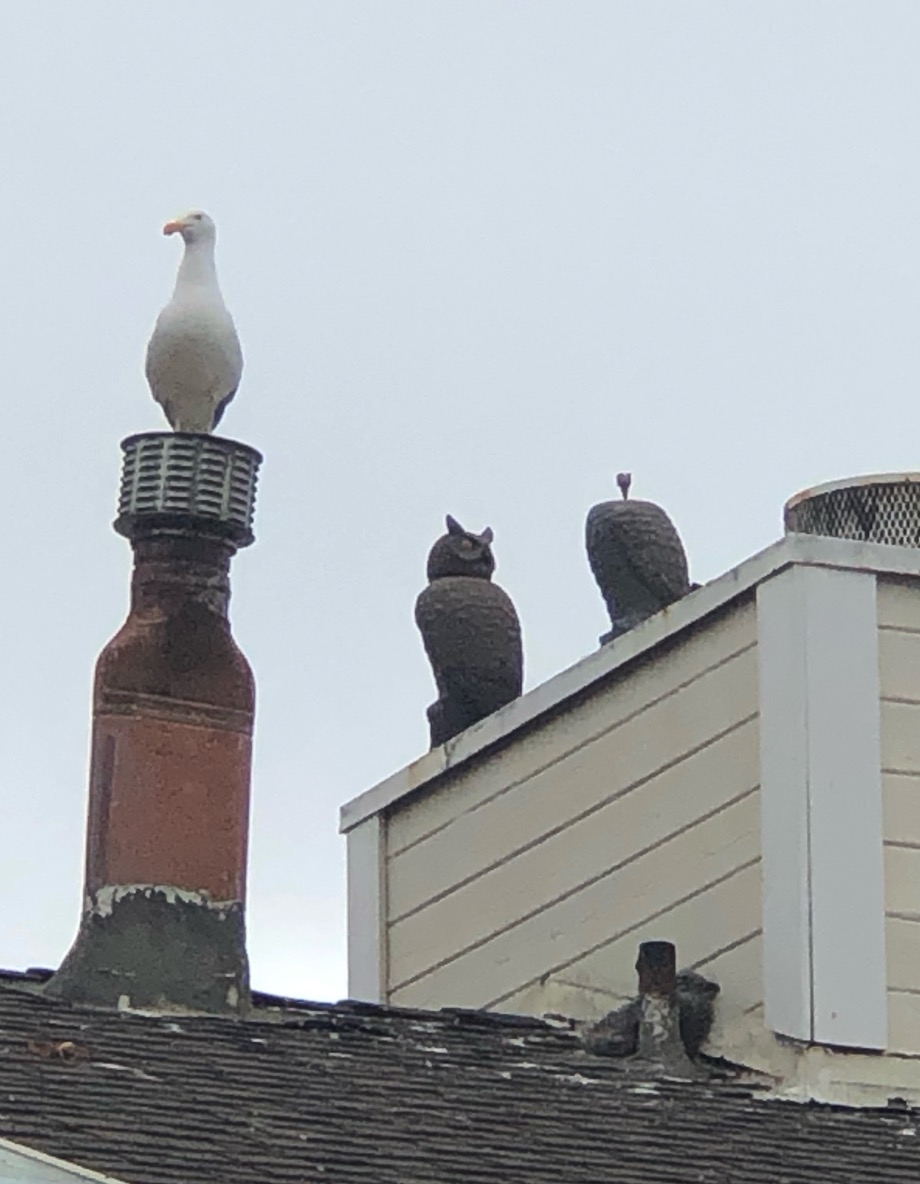Comments
ERIC PREVEN'S NOTEBOOK - The only thing more routine than a sidewalk crack in Los Angeles is a legal settlement about one. That, and our apparent civic devotion to tripping, slipping, falling, crashing, suing, and quietly paying out massive sums with as little sunlight as possible. Welcome to Claims Board Season, where every week is a crisis and the only transparency is the kind that costs a quarter-million dollars a crack.
Let me tell you a story.
One Tuesday morning, I was late, pissed, and running across Temple and Spring when the street rose up and knocked me out cold. Witnesses, including an LAPD officer, watched me land shoulder-first in a full-blazer roll—scuffed, humiliated, and lucky to hobble away. A blue-jacketed wreck. It took me 700 miles of pool laps to rehab. I didn’t sue. I didn’t bill Paul Krekorian. But I could have. And looking back, maybe I should have. Because I now understand how this city runs: on payouts.
Trip & Fall / Sidewalk / Tree Well / Pavement
I counted 42 of them in just a handful of meetings. Raised sidewalks, open tree wells, broken concrete, slick pavement. Our claimants fall on Hoover, Enadia Way, Maynard, Coliseum, and, of course, the Hollywood Walk of Fame. Nothing glamorous about broken bones and uneven bricks. But the price? That’s where the shine is. These cases alone rack up millions.
Vehicle v. Vehicle / Potholes / Bike Incidents
Twenty-two incidents involving e-bikes, potholes, rear-endings, and twisted intersections. One poor soul hit a pothole just west of the I-405 on-ramp. Another slammed into a city vehicle near Atoll Avenue. And what does the Claims Board do? Settle, baby. Quietly and consistently.
Police / Fire / Personnel / FEHA
This is the money lane. When LAPD or LAFD discriminates, retaliates, or roughs up the wrong person, we write checks. 19 cases included personnel disputes, wrongful terminations, harassment, and good old-fashioned excessive force. One bomb squad officer said he was passed over in 2014 and is still getting paid for it today. Another officer sued for harassment, retaliation, and FEHA violations in 2021. We handle all that. In closed session.
I wrote about a heartbreaking $14M county settlement last week.
Infrastructure / Trees / Pipes
If it leaks or falls, we pay. Sewer backups, fallen trees, burst pipes. Even a contractor suing over bridge work. Nine of these in our review. The only thing growing faster than our legal bills is the root system beneath our crumbling sidewalks.

Infrastructure upgrades are required.
Taxes / Permits / Refunds
Just one lonely case here. A permit refund. A soft whisper amidst the roar of structural decay and institutional failure. Adrin Nazarian CD2 is well-positioned to know nothing about refunds as his wife runs the Office of Tax breaks.
Other
Nine more cases that defy easy categorization but still cost us. When in doubt, write a check. The lawyers will sort it out. Or not.
And speaking of lawyers...
Hydee Feldstein Soto may be in the war room, but there is a hemorrhaging festering right under her nose. The Claims Board is controlled by three insiders: one appointee each from the Mayor, the Council President, and the City Attorney. Currently, that means a loyalist to Karen Bass, a designee of Marqueece Harris-Dawson, and the City Attorney's person. These three run the desk. They read the confidential memos. They greenlight the checks. They listen to nobody. When I asked last year it was: Ruth Kwon, Kelli Porter, and Councilmember Traci Park. (See CPRA below)
Sunlight? Comment? Public review?
Laughable. These items pop up at City Hall a closed session. But they frequently just read out the settlement on the fly, there's supposed to be a chance for the public to comment as the news of a dollar sum is a substantial change. But this crooked council race past it, even if there is an interested member of the public in the room. It's a slimy, dangerous game, and the public always loses.

Studio City, USA
Tell 'em what they've won, Johnny
I reviewed five Claims Board agendas from March to July 2025. The total? 111 settlement cases. Here's a comprehensive list of all 111 cases. Want to play? Guess the total dollar amount for all 111 cases, and you could win a signed 154-page July 1, 2025, Claims Board Agenda autographed by Eric Preven. If you guess within $1000, we will approach President Marqueece Harris-Dawson for his John Hancock as well.
Fun fact: that very July 1 agenda—the longest I've ever seen—had just one item in closed session. Item 151.
"A city is not judged by its towers, but by its sidewalks."
—Smart Speaker, 2025
We Need Civilians in the Room
Zev Yaroslavsky told the Times last week, You have to trust your lawyers. This is in the context of the botched Measure G—the one that undid Measure J. “They put it into the secret language of legalese that none of us understand,” he explained proudly.
That’s not how it should work. We need independent oversight. Sunlight. A civilian panel to review these claims. Because trusting lawyers is for suckers. And in LA, suckers pay retail.
Shade Throwers
While the city was debating how to plant more trees and throw more shade—literally, because it's dangerously hot and we're woefully behind on our urban canopy goals—the Claims Board quietly processed settlement after settlement about the damage caused by the trees we already have.
We talk about climate resilience. We issue press releases. But the sidewalks are buckled. The roots have won. Our answer? Write more checks. It's performance governance, but it's costing us real money.
Welcoming the World to Los Angeles
As the 2028 Olympics inch closer, we should ask: What kind of city are we showing the world? One where the streets are lawsuits waiting to happen? One where nobody in charge even reads the damn item numbers? Let's post claim forms near restrooms.
Smart Speaker: There are no restrooms.
This isn’t cynical. It’s civic. Because if the public can’t participate, it’s not a democracy. It’s a settlement.
More to come.
Get your Jelly Bean Jar guess to me by email, and I will try to follow up with Groat as to the actual number.
My Guess: Damage Estimate
Based on my review of the 111 settlement cases, I estimate the total payout at $37.2 million, broken down roughly as follows:
- Trip & Fall (53 cases): $5.8 million
- Bike/Scooter Incidents (7 cases): $770,000
- Traffic Accidents (23 cases): $2.9 million
- Harassment / FEHA (11 cases): $12.25 million
- Tax Disputes (8 cases): $5.2 million
- Police-Related Claims (13 cases): $10 million
- Tree Falls (3 cases): $900,000
- Sexual Assault (2 cases): $3.5 million
- Property Damage (6 cases): $2.1 million
- Professional Negligence (1 case): $600,000
- Public Records Issues (2 cases): $250,000
- Community Plan Lawsuits (4 cases): $2.4 million
- Miscellaneous / Other (4 cases): $3.4 million
- Refund Claims (3 cases): $750,000
- Dog Attack (1 case): $300,000
Estimated Total: $37,225,000
Dearest Groat:
Date: July 21, 2025
Hydee Feldstein-Soto, Strefan Fauble, Jonathan Groat
Office of the Los Angeles City Attorney
200 N. Spring Street, Los Angeles, CA 90012
Subject: Immediate Disclosure of Claims Board Designees, March–July 2025
Dear Ms. Feldstein Soto, Mr. Fauble, and Señor Groat,
Hope you're enjoying your extended vacay on the taxpayer dime. jk srsly.
I demand immediate disclosure of the three designees who served on the Los Angeles Claims Board for each meeting held from March to July 2025, excluding canceled meetings. Specifically, provide the names of the representatives from the City Attorney’s Office, City Council, and Mayor’s Office for each meeting, as previously identified in 2024 (Kelli Porter, Council Member Park, Ruth Kwon). If different designees served in 2025, their names must be disclosed.
Alternatively, to expedite this request, provide the statement of proceedings or minutes for each non-canceled Claims Board meeting from March through July 2025, clearly identifying the three attending designees. Transparency in these identities is essential to ensure accountability and public trust in decisions affecting public funds and justice.
Respond within 10 business days with the requested names or meeting minutes to [email protected]. Failure to comply risks further undermining public confidence in the City’s governance.
Govern yourselves accordingly,
Eric Preven
COMING THIS WEEK
L.A. County Board of Supervisors – July 22, 2025
Presentation-heavy agenda to start, with scrolls honoring the Kindness Campaign (Mitchell), Purple Heart recipients (Hahn), Flintridge Apprenticeship Program’s 50th cohort (Barger), and economic equity fellows from Cal State LA (Solis). Barger also spotlights a featured animal from the County’s Pet Adoption Program.
Public hearings dominate the midsection:
Items 1–3 bring a round of annual landscape and lighting assessments, with notable increases in Castaic’s North Bluff Zone 55, where single-family parcels may see rates jump from $67 to $331.36 if brushed. These are routine maintenance charges, but significantly higher this year—likely to raise questions from property owners.
Item 2 confirms $23 million in defensible space and vegetation abatement charges for FY 2024–25. The County will add these costs to property tax bills across fire-prone areas, with limited individual recourse or appeal.
Item 4 (water pipeline franchise to California Domestic Water Company) has been pulled and referred back to Public Works, signaling a likely procedural or legal issue.
Items 5–6 deal with fee adjustments and ordinance changes related to hazardous materials and state-mandated fire zone revisions. These changes are framed as technical updates, though the fiscal impact could be substantial for businesses subject to inspection or permitting.
Item 7 is a contested Conditional Use Permit modification for a Santa Clarita Valley development—Spring Canyon. An appeal is pending against the Planning Commission’s approval, raising concerns about the adequacy of an addendum to a decades-old environmental report.
Item 8 is a landmark designation for the Historic Highlands district in Altadena. Staff recommends approval. This is a meaningful historic preservation move under Title 22. (MEDIA frenzy)
Two emergency contracting reports (Items 9–10) document continued reliance on non-competitive procurement in response to the January 2025 windstorm and fire events. These reports cover facility repair and debris removal under delegated authority. The Board is asked to approve continued emergency status under Public Contract Code 22050. No sunset date is offered.

Wind.
Closed session includes anticipated litigation, labor negotiations, and performance evaluations for multiple department heads, including the Director of the Office of Child Protection and the Director of Aging and Disabilities. At least six cases of potential litigation are under review. Pffft.
Public comment begins at 9:30 a.m..
Call-in lines open at 9:00 a.m. with instructions to queue.
Bottom Line:
The heaviest scrutiny should fall on the emergency contracting extensions, the wildfire-related charges, and the CUP modification appeal, each of which reflects high-stakes decisions being made with limited public visibility.
A House Divided: The Dream of Homeownership Meets Co-Ownership Reality

Packed in tight.
It starts as a dream: a door key, a bottle of pinot noir on a bare floor, a freshly painted room. The math barely works, but you’re clever—maybe a duplex, a co-investor, a friend, or a spouse. You’re not just buying a house; you’re chasing a future.
For Gen Z and younger millennials, co-ownership is often the only path. A 2025 National MI and FirstHome IQ study shows a third of Gen Z adults are open to co-buying with friends or family. TikTok celebrates “house-hacking” success stories, but the National Association of Realtors notes a 15% rise in co-ownership disputes over the past decade. Real estate feels safe, but it’s not simple.
Co-owning rarely lasts decades. When friendships fade, partners split, or jobs shift, the house sits—unyielding—while tensions rise. Consider two cases: My family bought half a duplex, envisioning harmony. Then the other owners sold to a volatile neighbor, turning shared property lines into a battleground. Or take my friend, who bought a home with her husband, only to face his daughter inheriting a share, more costs, and more conflict.
Even marriage has traps. In California, separate property (like one spouse’s down payment) isn’t automatically “ours.” Divorce can mean a legal tangle over equity. A prenup isn’t unromantic—it’s clarity.
To mitigate risks, draft a co-ownership agreement before signing the deed. Spell out who pays what, who decides, and who gets first dibs if someone exits. Include buyout clauses to avoid unwanted co-owners. Regular check-ins can catch tensions early.
I’m not against co-buying, even with loved ones. But don’t indulge in fantasy. A house is a contract with your future. Picture your co-owner losing their job, marrying, or passing away—who inherits their share? Plan the exits. Because homeownership promises roots and refuge, but a house divided only stands with a foundation of clarity, not dreams.
(Eric Preven is a Studio City-based television writer-producer, award-winning journalist, and longtime community activist. He is known for his sharp commentary on transparency and accountability in local government. Eric successfully brought and won two landmark open government cases in California, reinforcing the public’s right to know. A regular contributor to CityWatch, he combines investigative insight with grassroots advocacy to shine a light on civic issues across Los Angeles.)












